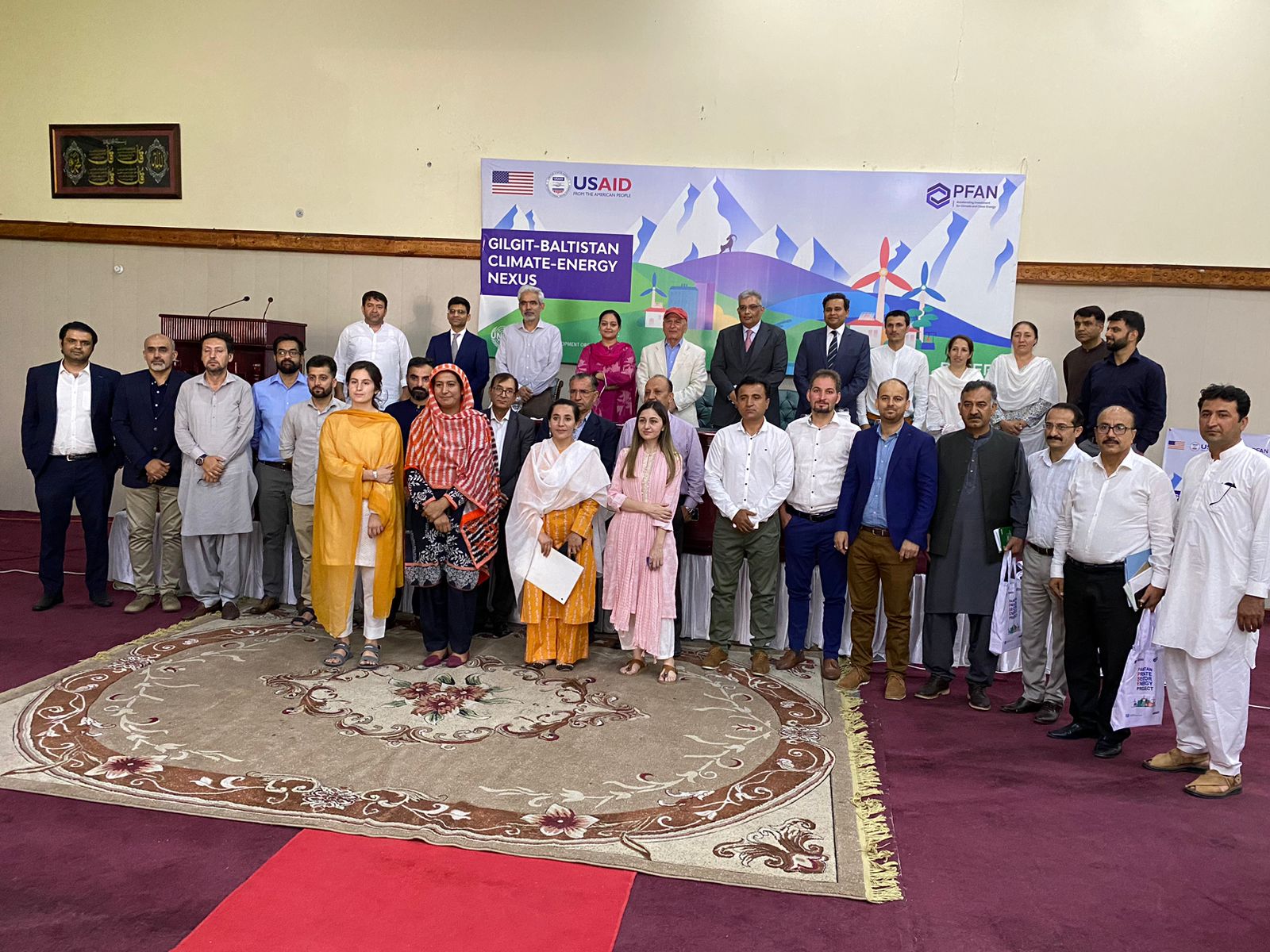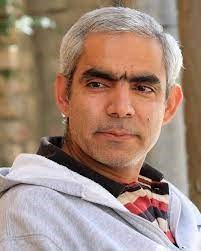
PFAN PPSE Hold Outreach and Origination Event in Pakistan’s Northern Province of Gilgit Baltistan
Home to one of the majestic highest peaks in the world, such as the K2, the North-most region of Pakistan – Gilgit Baltistan is an international and local tourism hub. However, due to its fragile ecosystem, conservation and sustainable development are imperative to safeguard Gilgit Baltistan. PFAN’s Pakistan-dedicated project, the Pakistan Private Sector Energy Project (PPSE) aligns well with these goals, providing origination and investment facilitation support to clean energy companies to scale up. Thus, the PPSE Project held its first origination event for GB on 21st June 2023 at the Chief Minister Secretariat in Gilgit. The event initiated a conversation on the dire need for clean energy to find constructive solutions to the challenges that are caused by climate change in Gilgit-Baltistan. The discussion brought together clean energy experts, businesses, government representatives, gender experts and community leaders who are involved in clean energy in GB and are committed to explore more avenues for funding and other technical support for clean energy.
According to Alternative Energy Development Board (AEDB), Gilgit-Baltistan (GB) has the largest hydropower potential for this clean-tech as compared to any other part of the country. The total hydropower potential in the region has not been fully investigated with estimated capacity varying between 31,000 MW to 105,000 MW.
These numbers show that there is great potential to engage local businesses to invest into small micro-hydels and other clean energy forms and sell sustainably-sourced power to local hotels and businesses in the rapidly developing tourism industry.
The Pakistan Private Sector Project (PPSE) funded by USAID Pakistan, is implemented by the Private Financing Advisory Network (PFAN) in partnership with UNIDO and REEEP.
Rabia Bukhari, Program Management Specialist at USAID Pakistan, inaugurated the event.
![]() USAID has been working with the Government of Pakistan since the 1970’s. When the first dams were built of Mangala and Tarbela were built, a US Private businesses consortium jointly helped finance them. In GB we have been supporting the Sadpara Development Project and are exploring further partnerships and opportunities here.”
USAID has been working with the Government of Pakistan since the 1970’s. When the first dams were built of Mangala and Tarbela were built, a US Private businesses consortium jointly helped finance them. In GB we have been supporting the Sadpara Development Project and are exploring further partnerships and opportunities here.”


Ghazil Jabbar, PPSE’s origination lead illuminated on the northern province’s immense untapped potential for sustainable power generation.
![]()
![]()


PPSE boasts a diverse network of advisors from all across Pakistan and Gilgit Baltistan is no exception, Mehnaz Parveen a local advisor, contextualized the project’s origination efforts for participants.
![]()
![]()


The event saw participation from government officials as well and the need for private-public partnerships for driving sustainable electrification in the province was reiterated in closing remarks.
![]()
![]()
![]()

